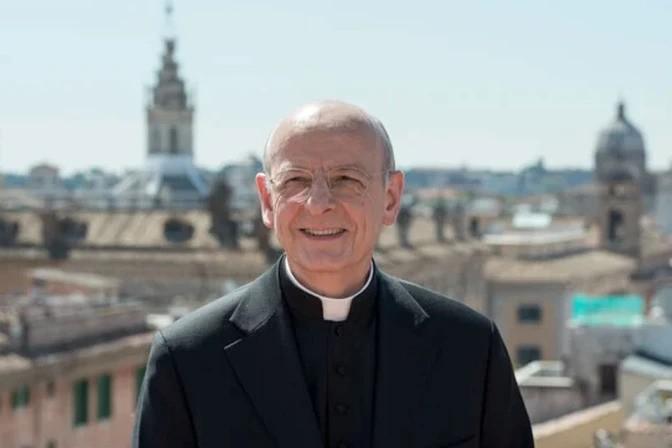Leader Of Opus Dei Says The Movement's Future Is In Its 'Members' Hands'
The statutes of the the prelature are under review, having been effectively demoted during the papacy of Francis.

Bishop Fernando Ocariz. Credit: Opus Dei.
While awaiting the renewal of Opus Dei's statutes, its Prelate, Bishop Fernando Ocáriz, affirmed that "the Work [Opus Dei] is in our hands."
Writing on the October 2 anniversary of the founding of Opus Dei, a worldwide association of Catholics and non-Catholics, and the October 6 anniversary of the canonization of the founder, Saint Josemaría Escrivá de Balaguer, Bishop Ocáriz encouraged members to "consider, with gratitude to God, the reality of our vocation to Opus Dei, with the consequent joyful personal responsibility of striving to be and carry out the Work in service of the Church." The renewal of the statutes of Opus Dei was presented to Pope Francis in June 2024, and remains pending.
Bishop Ocáriz recalled the words of Saint Josemaria regarding the identity and evolution of Opus Dei, which translated means 'Work of God.' “Just as a person's identity remains unchanged throughout the various stages of growth: childhood, adolescence, maturity...; so there is, in our development, evolution: otherwise, we would be a dead thing. The core, the essence, the spirit, remains unchanged, but the ways of speaking and acting evolve, always old and new, always holy.”
Bishop Ocáriz emphasized that it is above all in the personal apostolate that the members of the Prelature must bring “creativity and initiative into their ways of speaking and acting” while striving “to be faithful to the norms and customs—of spiritual and apostolic life—that Saint Josemaría handed down to us.”For the Prelate, the evolution of forms “has been and is a reality throughout this century of the Work,” which is combined with the fact that “nothing changes in the spirit or content of the norms of piety and family customs.”
Ocáriz explained that members of Opus Dei contribute “to creating and maintaining a family tradition” that is important as an element of “present-day unity and vital unity with the origins.”
He also warned against "experiencing the temptation of routine in living the norms of piety, customs, and means of formation. If we try to do so with love, there will be no routine or habituation: love renews all things."Given that “every day will have a new radiance and we can rediscover the beauty of our spirit,” the Prelate asked us to keep in mind that “we wish to be faithful not only to something—to a plan of life—but above all to someone: to Jesus Christ and, with him and in him, to our brothers and sisters and to the entire world.”
“The Work is in our hands, like a received inheritance, a treasure, which we must collaborate to make fruitful and transmit, with God's grace and with joy, despite our personal limitations and errors. And without being discouraged by external difficulties according to times and places,” he concluded before asking for union with Pope Leo XIV, especially in his prayers for peace in the world.